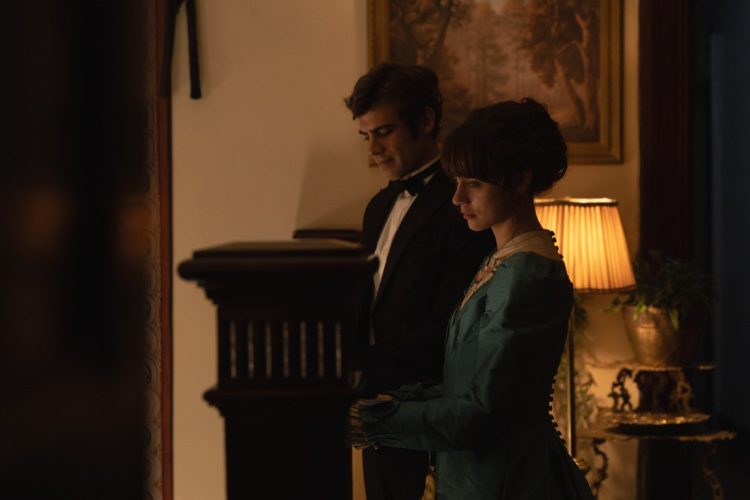HBO’s new “Like Water for Chocolate” is sumptuously shot. And it’s not just the costumes or the sets, although they are both clearly rendered with care. Gathered skirts, wide-brimmed hats, and lace-up black boots. Colonial archways and formal sitting rooms. What makes this show feel so rich is the cinematography, framing a kiss between the young lovers, an ill-fated wedding feast, and a painful birthing scene in ways that evoke magic. It’s all emotion and beauty and that’s before we get to the food.
And the food is lovely too. I stayed through the credits to catch the close ups of bowls and big wooden spoons, ingredients combining and transforming. It didn’t make me hungry so much as comforted, offering a vision of food as an end in itself. The making is an art form and the consumption is the delightful result.
Now, for those not familiar with “Like Water for Chocolate,” this famous tale originated in a 1989 book by Laura Esquivel before hitting theaters in the States in 1992. The HBO series is the first adaption in more than 30 years, and it faithfully renders the tale of Tita de la Garza (Azul Guaita), the youngest daughter of bitter widow Mamá Elena (Irene Azuela).
In the two episodes available to critics to screen, they’re Mexican aristocrats, their peers more perplexed than threatened by the budding revolution around them. Tita is the youngest of three sisters, and she can put her emotions into food—so the eater can taste her love if that’s what she was feeling while she was cooking, or her sadness.
There’s a lot of sadness: Mamá Elena has decided Tita must abide by the old tradition that the youngest daughter can never marry, but must dedicate her life to taking care of her mother. It’s a particularly bitter pill to swallow for Tita, whose relationship with her mother is rocky at best and who’s shared a soulmate-level love with a neighbor boy, Pedro Múzquiz (Andrés Baida), since they were both children.
With well-worn IP, a production such as this has to answer the question – why not just watch the original? Executive produced by Salma Hayek Pinault, “Like Water for Chocolate” has plenty of reason to exist, its episodic format able to include much more of the book’s nuance.
For example, the first two episodes set up middle-sister Gertrudis (Andrea Chaparro) to get more screen time, foreshadowing her transition from overlooked daughter into fearsome guerrera. There are also glimpses in the show’s early episodes of how the series will treat eldest daughter Rosaura (Ana Valeria Becerril). In some ways, she is her evil mother’s accomplice, but she is also her victim, and the show seems primed to honor her complexity, rendering her more human.
The series also takes pains to reflect Mexico’s racial castes, ensuring Indigenous actors play Indigenous parts; they also pay attention to the de la Garza family’s color and how it informs the matriarch’s valuation of her daughters. This attention pays off as we watch the revolution brewing and see how racism fueled the need for it—something the film glossed over.
“Bridgerton” this is not. And yet, I hope fans of that saucy costume romance tune in. “Like Water for Chocolate” has many of the same elements – romance, fancy dresses, there’s even a ball! But the feel is different – darker, for one, with nods to candlelight that “Bridgerton” has never bothered with. However, the cultural touchstones are also different, as this is a Mexican rather than a British story. The role of food is obviously more central here, as is the understanding of class and race. But more than that, there’s a poignant thread of injustice. “Like Water for Chocolate” traps its characters in dense emotional webs that “Bridgerton” never approaches. This is a universe that doesn’t pretend that everything always turns out all right in the end.
It’s a different worldview, and it yields a different story, even with many of the same elements. Parts are imperfect – Nacha (Ángeles Cruz), Tita’s de facto mother and the one who teacher her how to cook, may get more of a backstory, but it is still grating that the darker-skinned woman exists solely as a vessel for Tita to learn. Yet still, it succeeds in making the decades-old story, set one hundred years ago, feel fresh and alive.
Oh, and did I mention the food? It’s beautifully rendered, too.
Two episodes screened for review. Premieres on November 3rd on HBO.
A review of the HBO series adaptation of “Like Water for Chocolate.” Read More


